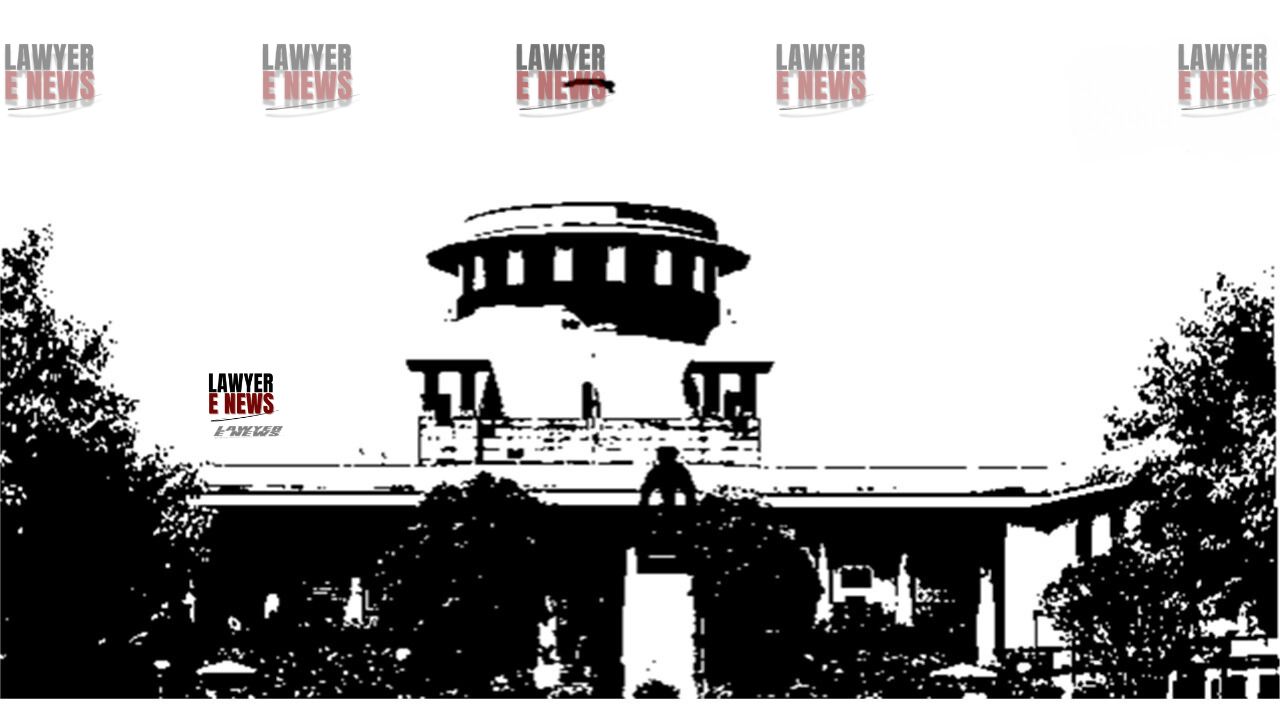-
by Admin
15 February 2026 5:35 AM



In a significant judgment, the Supreme Court of India dismissed an appeal challenging the jurisdiction of an Execution Court to extend the time for depositing the balance sale consideration in a specific performance suit. The case revolved around a contentious property transaction in Kaithal, Haryana, where the appellants sought rescission of the contract after the respondents failed to deposit the balance sale consideration within the stipulated time. The Supreme Court upheld the Execution Court's decision to extend the time, affirming that such courts retain the necessary jurisdiction to ensure the execution of decrees, even when the decree was passed by an appellate court.
The dispute originated from an agreement to sell property dated May 18, 2005, where the appellants (Ishwar, now deceased, represented through his legal heirs) agreed to sell a piece of property to the respondents (Bhim Singh and another) for ₹18 lakhs. An advance payment of ₹9.77 lakhs was made by the respondents, but the appellants did not execute the sale deed despite multiple notices. Consequently, the respondents filed a suit for specific performance in 2006 before the Additional Civil Judge (Senior Division), Kaithal.
The trial court, on February 28, 2011, partially decreed the suit by ordering a refund of the advance payment with interest, but it denied the specific performance sought by the respondents. Dissatisfied, the respondents appealed to the Additional District Judge, Kaithal, who, on January 12, 2012, reversed the trial court's decision and decreed specific performance of the contract. The appellate court directed the appellants to execute the sale deed within two months of the decree, upon receiving the balance consideration of ₹8.23 lakhs from the respondents.
Subsequently, the respondents filed an execution application on March 20, 2012, requesting the court to facilitate the execution of the sale deed and deposit the balance consideration. However, the appellants, resisting this move, filed an application under Section 28 of the Specific Relief Act, seeking rescission of the contract due to the respondents' failure to deposit the balance amount within the stipulated period. The Execution Court dismissed the appellants' application on November 3, 2016, and allowed the respondents to deposit the balance amount.
Aggrieved by this order, the appellants approached the High Court of Punjab and Haryana, which dismissed their revision petition on January 11, 2017. The appellants then escalated the matter to the Supreme Court.
Jurisdiction and Authority of Execution Court: The Supreme Court thoroughly examined whether the Execution Court had jurisdiction to extend the time for depositing the balance sale consideration under Section 28 of the Specific Relief Act, 1963. The Court observed that Section 28 allows a court that passed the decree, including an appellate decree, to extend the time for deposit or rescind the contract upon failure to meet the payment terms.
The Court cited previous rulings, including Ramankutty Guptan v. Avara and V.S. Palanichamy Chettiar Firm v. C. Alagappan, which established that the power of the Execution Court includes overseeing the execution of the decree even if the appellate court issued it. It emphasized that the expression "in the same suit" under Section 28 should be interpreted broadly to encompass the Execution Court's authority when it is also the court of first instance.
The Supreme Court noted that while applications under Section 28 should ideally be treated as part of the original suit and not as an execution proceeding, this procedural aspect does not affect the substantive rights of the parties. The Court acknowledged that procedural formalities should not override the goal of delivering substantial justice. The Execution Court’s decision to treat the application for extension of time within the execution proceedings was, therefore, upheld.
In exercising its discretionary powers under Article 136 of the Constitution, the Supreme Court reiterated that it does not interfere in cases where substantial justice has been served, even if there are technical errors. The Court observed that the respondents had consistently shown their intention to fulfill their contractual obligations by promptly filing for execution and seeking permission to deposit the balance amount in court. The delay in payment was attributed to the ongoing litigation, where the appellants were actively challenging the decree, thus hindering the execution process.
The Court also rejected the appellants' argument that the Execution Court lacked jurisdiction to extend the time due to an alleged improper application by the respondents. It held that the respondents’ consistent efforts to deposit the balance consideration, despite procedural delays, demonstrated their readiness and willingness to execute the sale deed, thereby justifying the Execution Court's decision to allow the extension.
The Supreme Court concluded that the Execution Court had rightly exercised its discretion under Section 28 of the Specific Relief Act. It emphasized that execution courts retain the power to extend deadlines for depositing balance considerations, especially when the delay does not result from any fault of the decree holder but rather from the actions of the judgment debtor.
Date of Decision: September 3, 2024.
Ishwar (Since Deceased) through LRs & Ors. v. Bhim Singh & Anr.
